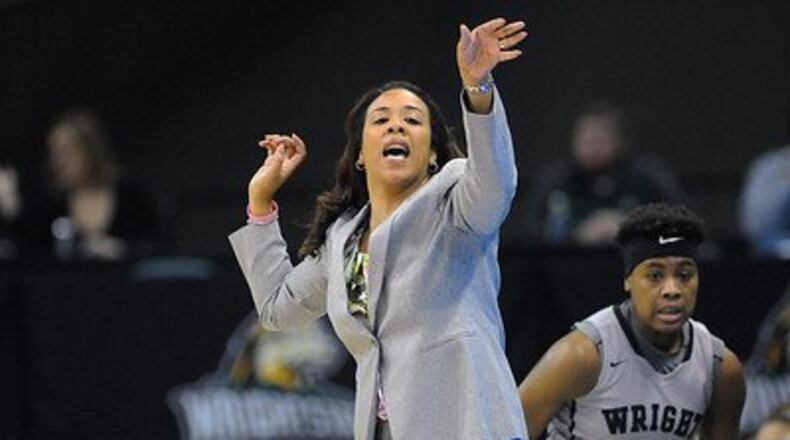The Wright State University Women’s basketball team faced numerous obstacles this season ― a pandemic, including positive tests on the squad, and academic budget cuts.
Still, they persevered on and off the court, posting an 18-7 record and becoming the only college basketball team in the area to play in the NCAA Tournament. This year’s squad, a 13th-seed, is the third in school history to play in the tournament and win the Horizon League championship. The team’s GPA is the highest in 11 years.
Wright State is scheduled to face fourth-seeded University of Arkansas (19-8) at 2 p.m. today. The game will be on ESPN, and the university will host a campus watch party in the Student Union Apollo room. A second watch party will be held at Milano’s in Beavercreek, 2260 N Fairfield Road.
Q: How has your ethnicity or heritage influenced how you grew up or your decisions that brought you to this point in your life?
A: Just having a diverse background and a wide range of experiences has really taught me to value the overall person more than anything.
Q: Did you have any role models that you looked up to growing up? Who were they?
A: I think it starts with your family, my mom and my grandmothers. And then in coaching, Coach Vivian Stringer clearly paved the way for women, and for black women.
Q: What does it mean to you to be a role model to many of the young women on your team?
A: It means everything. It’s the main reason that I do what I do. Being a role model is probably the most meaningful part of this job, it’s not the wins or losses of the championships, but just the impact that we make in their lives.
Q: Why do you think it’s important for the young women on your team to see Black women in positions like yours or even Kamala Harris as Vice President?
A: I think that we all felt a great sense of pride when Kamala became the Vice President, It was a very surreal experience because I don’t know that we all knew that something like that was possible during our lifetime - having a woman in office to begin with. The prime moment for us is when you see someone who just looks like you, and it gives you more hope that all things are possible.
Q: What do you think is the biggest obstacle for young African Americans growing up today?
A: Fighting the stereotypes. I think the biggest challenge is just getting people to look beyond and to take the time to get to know someone for the quality of their character and who they are as a person, and to not just make assumptions based on what we look like.
Q: If you could say anything to a young black person growing up in America, or living in America today What would you say to them?
A: Never forget that there are far more people cheering for you than against you. Allowing people to deter you, allowing people to discourage you, is a choice. And you can choose to focus on the positive energy that comes from the people that believe in you, the people that support you, the people that know that you too can accomplish greater things than anyone that could ever doubt you.
Note: This interview was edited for brevity.
About the Author
